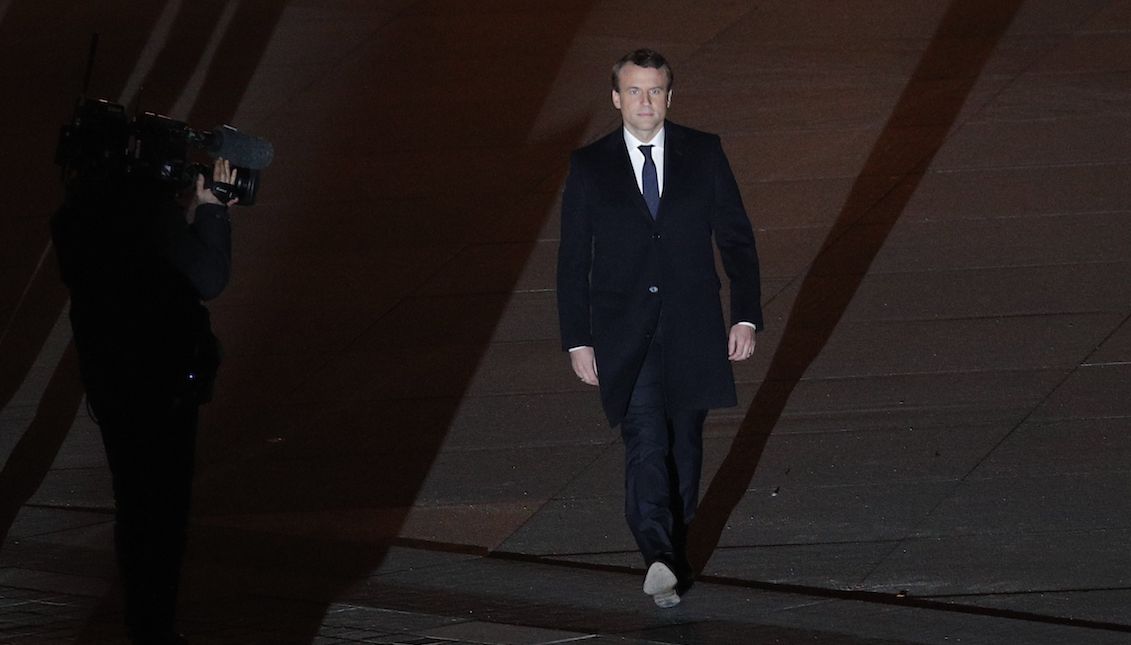
What is the symbolism behind Emmanuel Macron’s victory speech?
The speech of the new president of France, carried out last Sunday in the Museum of the Louvre (Paris), has been crumbled by several national analysts, who…
After winning a bloody electoral race against Marine Le Pen, Emmanuel Macron has positioned himself as the youngest President in the history of Republican France, with a percentage of votes that have many people still with their mouths open.
The young candidate was lucky that his way was cleared by others’ mistakes, and a proposal that reflected only the lesser of two evils, especially against the extreme right-wing nationalism that was his opponent.
But being consistent with his campaign and with the promise of being a "cross-party" option, which would not decant to any extreme, the candidate's production and public relations team gave a show that sets the pattern in the beginning of a New France.
In an explanatory video, the newspaper Le Monde has done an analysis of the most important aspects during the victory speech of Emmanuel Macron, highlighting, from the beginning, the punctual choice of the site where the speech would take place.
"For the first time, an elected president celebrates his victory at the Louvre. Considering himself ‘neither right nor left’, Macron rejected their traditional symbols", says the media.
As the historian and political communications specialist Pierre-Emmanuel Guigo explains, "The victory of a left-wing President of the Republic is celebrated above all in Bastille, for the Bastille is a revolutionary symbol par excellence". The historian recalls in this way the event produced in Paris on Tuesday, July 14, 1789, when the fortress of the Bastille fell into the hands of the revolutionaries in Paris, marking the end of the Old Regime and initiating the French Revolution.
For its part, the Plaza de la Concorde is the space associated with the right, and the site preferred by its candidates to celebrate the presidential victories.
Emmanuel Macron chose precisely one place between both symbols, as echo and reaffirmation of his presidential position.
Another aspect that highlights the French environment is the use of several references to the former socialist president François Mitterrand, nesting above all in the space of the Louvre.
RELATED CONTENT
All you have to do is look at the pyramid in the Napoleon courtyard, in front of the museum, which was commissioned by Mitterrand in 1983 to the Sino-American architect Leoh Ming Pei, as part of his government's democratizing project in the field of culture.
Similarly, it was at the Louvre that several meetings were held in view of the Maastricht Treaty or the Treaty on European Union in 1992.
Also, Macron's "stage march" for "more than three minutes" reminds all the French of the scene in which Mitterrand walked in the Pantheon.
Guigo explains a little, when he says: "the staging of a single man, who advances towards the crowd, with a camera fixed on him following his walk, makes clear reference to the scene of Mitterrand in the Pantheon, after having been elected president in 1981".
In the same way, Emmanuel Macron used the music that then president Mitterrand to set his scene: the Hymn to Joy, better known as the Hymn of the European Union.
Finally, Le Monde rescues the similarity of the theatricality of Macron with the gesture of the former French president Valéry Giscard d'Estaing who, having been newly elected in 1974, publicized his encounter with the crowd and in whose gesture, according to the historian, "There are many parallels": "Both are young, both were ministers of Economy and Finance and both were imposed without the support of the major parties".
For national analysts and critical historians, the intentionality of Emmanuel Macron is clear: with him begins a new stage in the political history of France and his interests will not be far from those of the European Union.











LEAVE A COMMENT:
Join the discussion! Leave a comment.